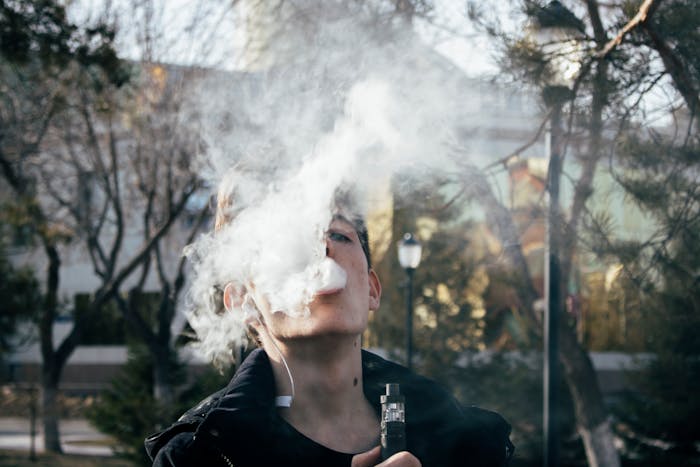Vaping has become a major concern in schools, the working environment and public areas.
According to the UK government, the number of children using vapes has tripled over the last three years with almost 20% of children aged 11 to 17 in the UK known to have tried vaping. Disposable vapes are thought to be a strong cause of this. [1]
As a result, from 1 June 2025, the government will bring in a ban on all single-use vapes due to both environmental reasons and the rise of young people using them.
After this date, it will be illegal for any business to supply or sell single-use (disposable) vapes.
This blog piece will explain why disposable vapes are so dangerous and how schools can make a difference in light of the upcoming single-use vaping ban in the UK.

A single use vape or disposable vape is a vaping device that is not designed to be re-used.
This means that it is not rechargeable or refillable.
Despite the fact they are illegal for those under 18, single use vapes are largely advertised towards young people and children, with bright packaging and sweet flavours.
In schools, they are having many negative impacts on children. Teachers have reported the following: [2]

Single use vapes are incredibly cheap but can cause a lot of damage to both the user and the environment.
The risks include:

Schools play a big role in young people’s activities and can be a leading environment for change. [4]
Below are some of the ways schools can help stop the rise in youth vaping:
It is difficult to tackle vaping trends without first trying to understand why young people vape.
Peer pressure is one factor, but many students vape to:
In schools, one-off sessions about the risks of vaping, including the health issues surrounding nicotine use, are not enough.

Generally, schools avoid getting parents involved unless there is a more serious problem. However, preventing vaping among young people extends beyond the classroom.
There is not enough data to answer this question completely, however, it is thought that the ban is a step in the right direction to reducing the number of children and young adults who are vaping.
There are concerns that the ban could lead some to buy illicit vapes on the black market, which could result in unregulated sales containing more harmful chemicals including lead and nickel. Unregulated vapes can also deliver up to 7,000 puffs, far more than current regulated ones (600-1,000 puffs).
Another worry is that more people could just return to regular smoking with traditional cigarettes containing tobacco.
If you or someone you know is struggling with a vaping addiction or would like any more information about anything mentioned in the blog post, call Rehab 4 Addiction today at 0800 140 4690.
Our team offer free and confidential advice about addiction and mental health, and can help support you with treatment options if you feel that is needed.
[1] https://educationhub.blog.gov.uk/2024/01/disposable-vape-ban-and-what-it-means-for-young-people/
[2] https://www.gov.uk/government/news/government-crackdown-on-single-use-vapes